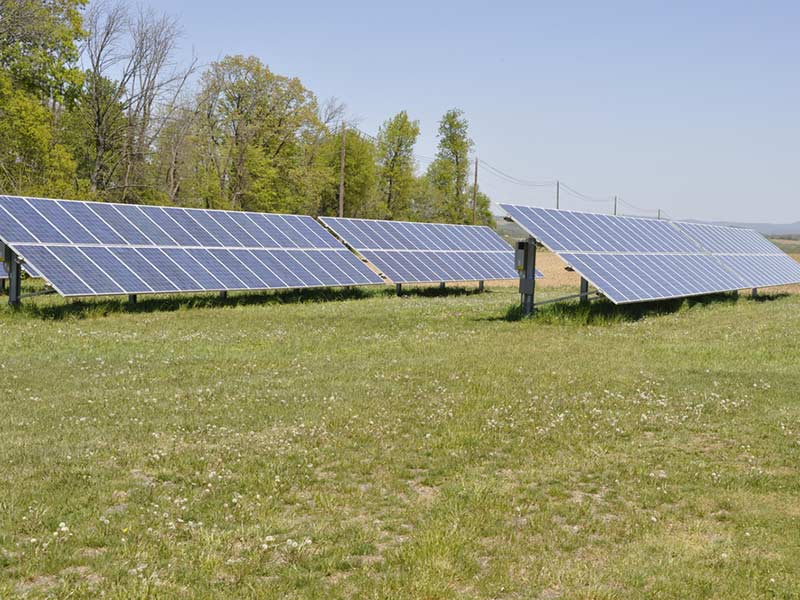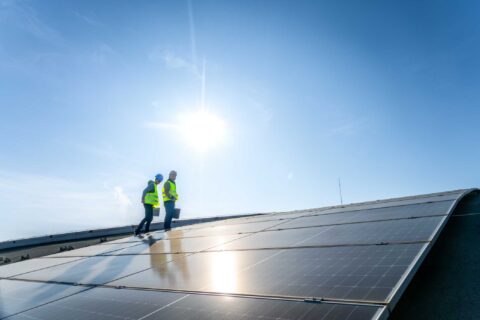Things to Know about Ground Mounted Solar

Making the switch from traditional electricity to solar power is no small task. If you’re new to the world of solar power, it’s understandable to be a little overwhelmed. Making the switch to solar power is a great way to cut down on monthly expenses, lower your carbon footprint, and lower your taxes. Solar panels can be either ground or roof-mounted. Both installation types have unique pros and cons. Let’s take a closer look at ground-mounted solar power systems so you can determine if it’s a good fit for your home!
Standard vs Pole Mounted
Standard ground-mounted solar power systems are solar panels that are installed on your property instead of on the home itself. Pole-mounted solar systems are considered ground-mounted too, but the addition of a pole to raise the panels off the ground is a key difference. Standard mounted systems don’t move once they’re installed. Since the sun moves throughout the day, that limits the number of hours ground-mounted solar panels can gain power. Pole-mounted systems are able to move throughout the day using a sun tracking system. This allows them to soak up the sun’s helpful rays all day long!
Cost & Efficiency
Cost and efficiency are the two biggest concerns for most homeowners looking to install solar panels around their homes. Ground-mounted solar systems are more expensive than roof-mounted solar systems. The higher cost comes from the additional labor involved in installing a ground-mounted solar system. When a roof solar system is installed, the roof below acts as the biggest support piece. With a ground-mounted system, the installer has to craft a support system above the ground and under the panels before installation.
In terms of efficiency, ground-mounted systems perform better. This is because your installer can help choose the best position to allow for optimum sun exposure. Even if your roof is facing the right way for good sun exposure, there’s a risk your roof won’t be able to handle the weight of the solar systems. Your roof also gets a lot hotter than the ground, which harms the solar system’s efficiency.
Location
The only real downside that comes with ground-mounted solar systems is the amount of space they take up. The exact square footage you’ll need to set aside for a ground-mounted solar system depends on how much power your home needs. Once the installer determines how much space you need, that space will be set aside for solar panel installation. This reduces the amount of useable space you have outdoors. The benefits far outweigh this one small negative for many homeowners, though!
Contact ACE Solar today to learn more about ground-mounted solar panel installation for your home!

